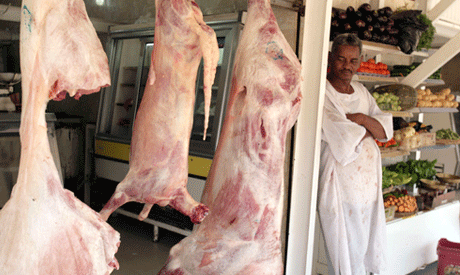
A butcher waits for customers in Khartoum, Sudan (Photo: Reuters)
Sudan will temporarily waive taxes and custom duties on a range of basic food items to fight spiralling inflation, a government official said on Tuesday, after price rises triggered a rare call to boycott meat.
The African country has been hit by an economic crisis with annual inflation topping 21 per cent in August and high unemployment, compounded by a long-running U.S. trade embargo. The Sudanese pound plunged to a new low last week as importers struggled to get dollars.
The Sudanese Consumer Protection Society called for a boycott on meat this week to protest against rising food prices. Many butchers in the capital Khartoum have seen far fewer customers over the past few days.
To boost supplies and bring down prices the government will temporarily waive taxes and custom duties for 12 basic food items such as lentils, milk and cooking oil, Khartoum governor Abdulrahman al-Khidir told reporters on Tuesday.
The government would also tighten supervision of markets, he added. Boycott organisers have accused some merchants of overcharging for locally-produced meat.
Analysts say food inflation could stoke dissent among people already hit hard by unemployment, a devalued local currency, lack of foreign currency and U.S. trade sanctions.
Sudan lost 75 per cent of the country's 500,000 barrels a day of oil production when South Sudan seceded in July after an independence vote agreed under a 2005 peace deal.
South Sudan will have to pay fees to use Sudan's pipelines to get its oil to market. But Sudan is likely to earn less than the 50 per cent share of southern oil revenues it received previously.
Falling oil revenues will worsen a dollar scarcity in the north in the next few months, analysts say.
Short link: